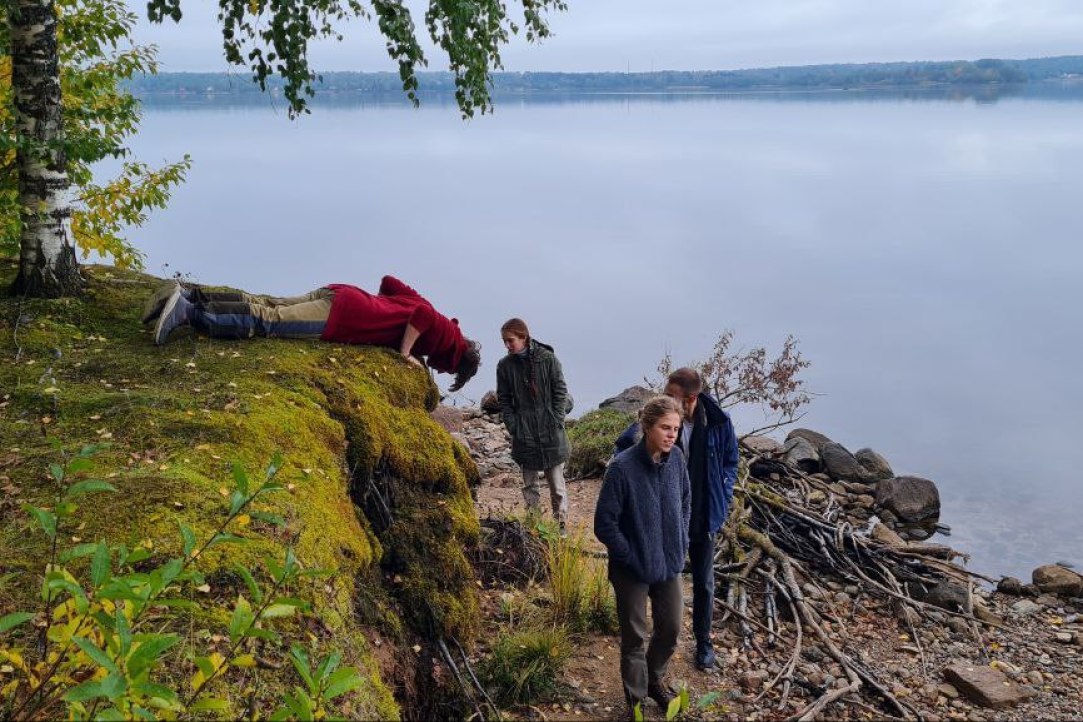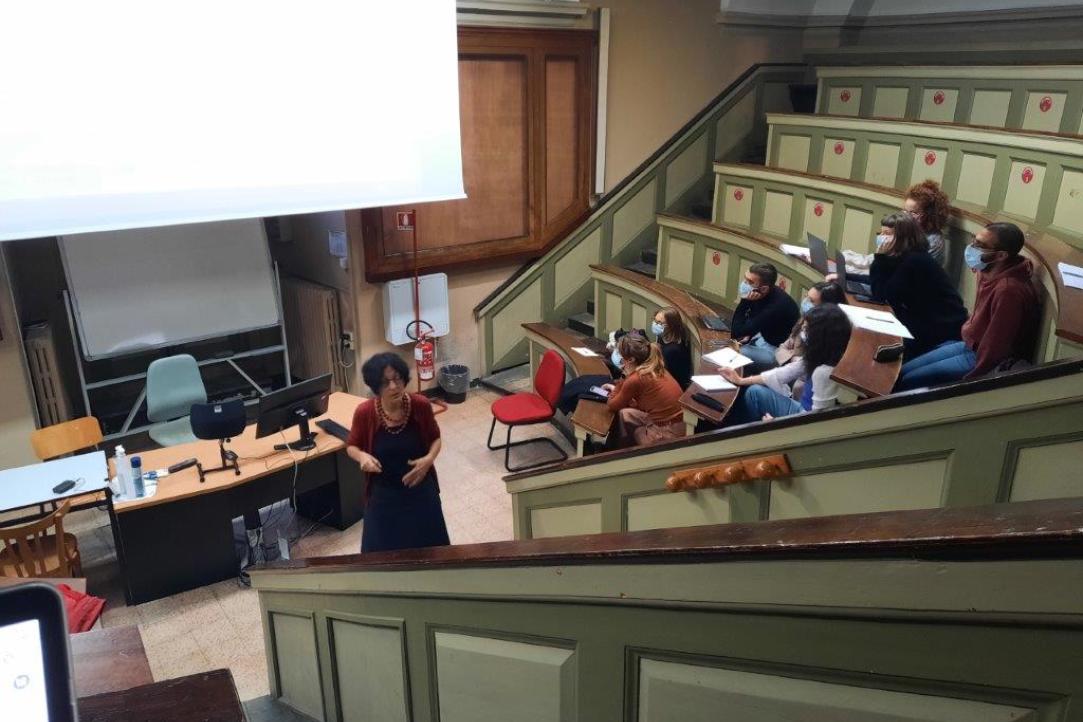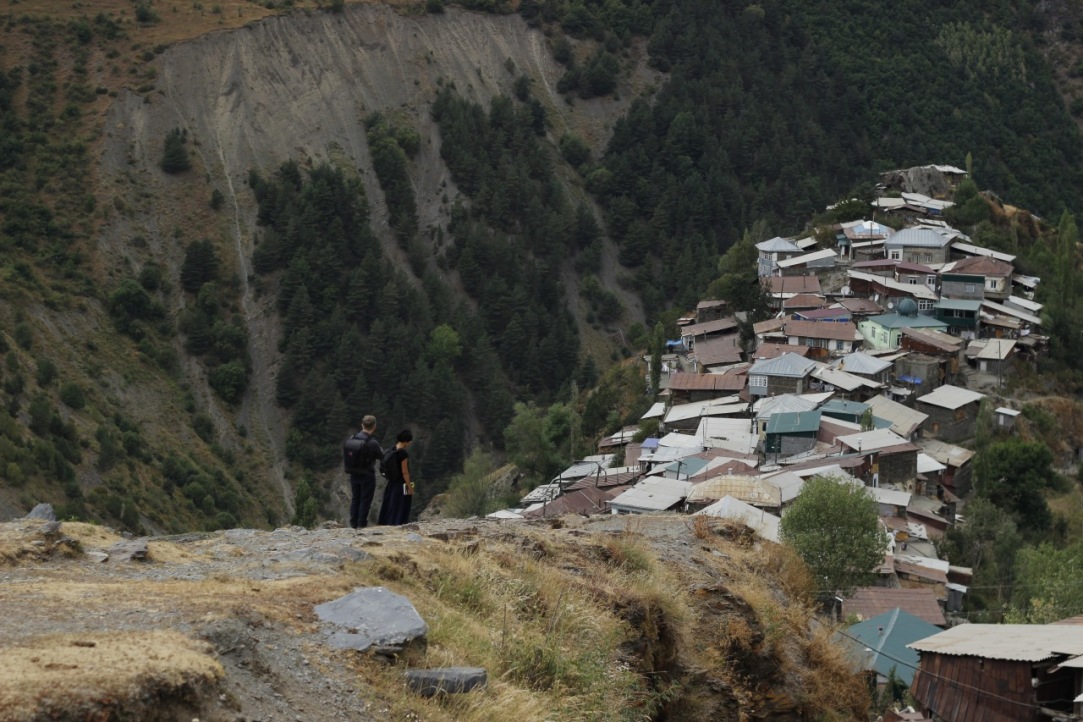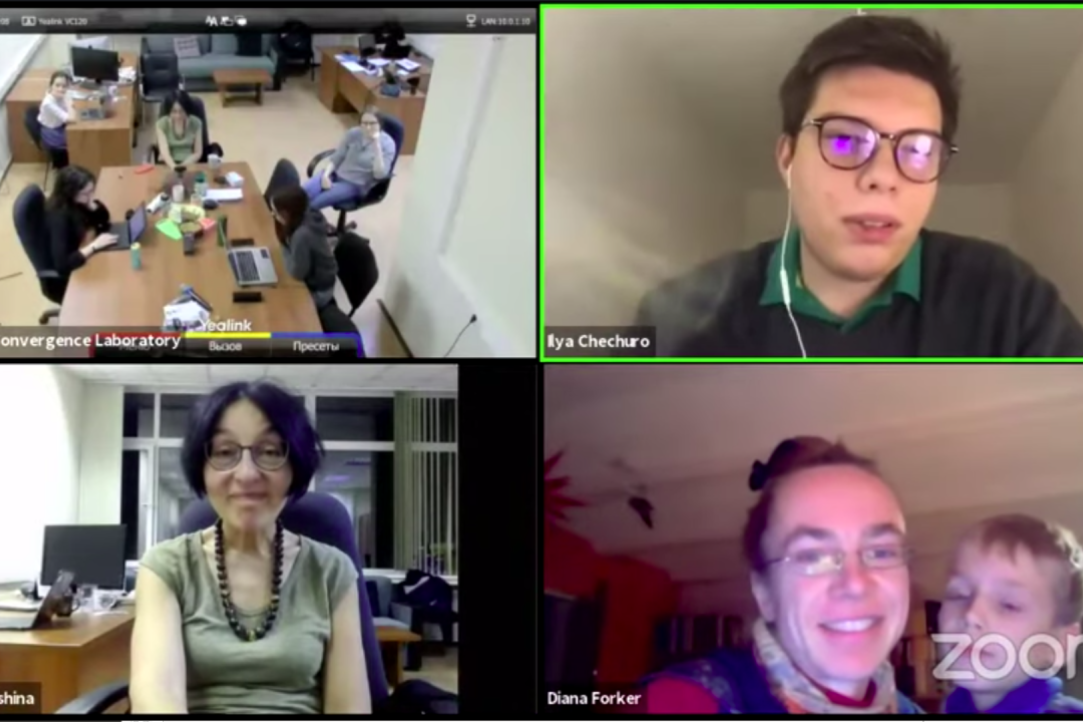
News from the fields on Lake Velyo: the fourth trip of the Society of Field Linguists took place
On October 1-2, the fourth retreat seminar of the Society of Field Linguists took place, organized jointly by the staff of the Linguistic Convergence Laboratory and the Institute for Linguistic Studies (RSA).
In 2021, members of the Linguistic Convergence Laboratory published three articles on the Russian language in Dagestan
Dagestan is a relatively new territory for the spread of the Russian language. At the end of the 19th century, very few people spoke Russian here. In addition to indigenous languages, which Dagestan is very rich in (linguists count more than forty languages in this small territory), local people spoke Azerbaijani, Georgian, Chechen and Arabic. But there has never been a language common for all residents of Dagestan (the language of interethnic communication or lingua franca). Russian became the first such language for Dagestan.

Members of the Linguistic Convergence Laboratory Michael Daniel and Nina Dobrushina gave two lectures each at the University of Pavia
On November 3-5, the members of the Linguistic Convergence Laboratory Michael Daniel and Nina Dobrushina gave two lectures each at the University of Pavia.

Second cycle of the online course on the East Caucasian languages by the Linguistic Convergence Laboratory
This fall the Linguistic Convergence Laboratory will organize a free online course on the East Caucasian (alias Nakh-Daghestanian) language family. The course will start on November 3.
.jpg)
Members of the Linguistic Convergence Laboratory published a paper in Language
In early October, members of the Linguistic Convergence Laboratory published a paper in Language . Language is the flagship journal of the Linguistic Society of America and one of the most respected general linguistics journals in the world; perhaps the most prestigious one. Since the journal’s launch in 1925, it has seen the publication of only two papers whose first author is a researcher affiliated with a Russian university or institute.
The International Linguistic Convergence Laboratory has launched a new website with resources
One of the tasks of the International Linguistic Convergence Laboratory is the creation of new open electronic resources dedicated to the minor languages of Russia, Russian dialects and contact varieties of Russian speech. For more than four years, these resources have become so abundant that the laboratory had to acquire its own server and create a special website where all the resources are conveniently located.
.png)
The School of Linguistics hosted a series of lectures on the foundations of language evolution by the member of Linguistic Convergence Laboratory Damian Blasi
From February 4 to March 20, the School of Linguistics hosted a series of lectures on the foundations of language evolution. The course was read by Damian Blasi, the member of Linguistic Convergence Laboratory, an author and co-author of works on fundamental problems in creole linguistics, linguistic symbolism and the history of linguistic diversity. In his lectures Damian Blasi considered both the main aspects of the theory of the language evolution, as well as more narrow topics, such as the structure of animal communication systems and their differences from human language, the time of the speech appearance in humans, biological and genetic foundations of language ability, multilingualism, and models of linguistic evolution.

Members of the Linguistic Convergence Laboratory contributed chapters to new Oxford Handbook of Languages of the Caucasus
A new Oxford Handbook dedicated to the languages of the Caucasus appeared this month. It contains several contributions from members of the Linguistic Convergence Laboratory.

The Linguistic convergence laboratory conducted an online course on Nakh-Daghestanian languages in October - December 2020
The Linguistic convergence laboratory organized an open course in English about the main area of expertise of the laboratory - the languages of the Nakh-Daghestanian (also known as East Caucasian) language family.
.png)
The Linguistic Convergence Laboratory organized a joint seminar with the Max Planck Institute for Human History (Jena)
The seminar of the Linguistic Convergence Laboratory on November 10 was held in the format of a joint meeting with linguists from the Max Planck Institute for Human History (Jena). Damian Blasi made a report in which he presented his hypothesis regarding the dynamics of the number of languages since the early Holocene.
